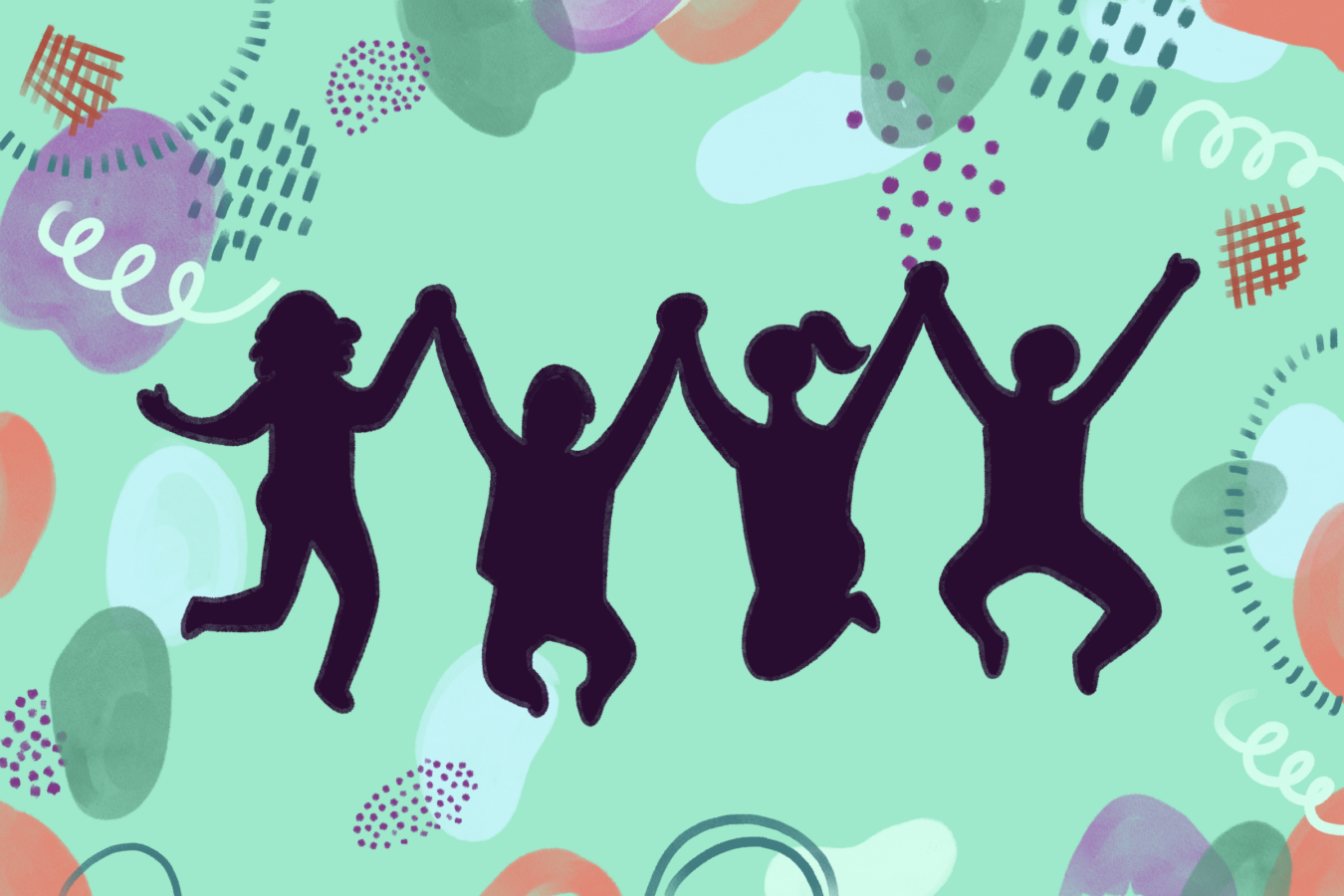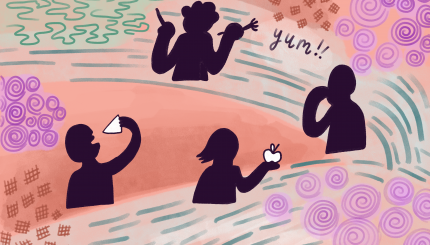Bert and Ernie. Thelma and Louise. Calvin and Hobbes. Ben and Jerry. What do all these pairs of forever friends, of best buddies, have in common? It’s hard to pin down. If you yourself have a friend who has been with you through thick and thin, in your best moments and your worst, you might have trouble putting your powerful feelings about them into words, too.
The Hasidic masters, the rabbis of the 18th century Jewish spiritual revival popularized by the Baal Shem Tov, had trouble as well. In hundreds upon thousands of creative interpretations of the Bible and the Talmud, the words “friend” and “friendship” appear only a handful of times. When friendship is talked about, it’s often in the context of discussions about the pilgrimages devoted Hasidim made to their rebbe for Shabbat or Jewish holidays, and how these spiritual seekers could really only connect deeply with one another through their rebbe. After reading texts like these, it’s hard not to wonder if the authors, after listening all day long to the problems of their followers and spending all their time inspiring others, felt a little lonely themselves. So do we sometimes.
But that doesn’t mean Hasidut has nothing to teach us about friendship. In fact, one of the most surprising Hasidic texts I’ve ever read, from Rabbi Kalonymous Kalman Epstein of 18th century Poland, is about the deep interpersonal connections that happened on Hasidic pilgrimages. In his commentary on the Torah, Maor va-Shemesh, Rabbi Epstein explains what happens when a Jew witnesses the sacrifices made by Jews from all walks of life to be together with their rebbe, and how they all humble themselves — regardless of their age, material wealth or social status — to receive wisdom from their teacher:
A person’s heart will melt inside of them like water, and they will be humbled, their heart broken before each and every person present, and they will want to actually enter into each person out of joy and love, and their heart will be broken into pieces of pieces over all of the foolishness from their past.
Hearts melting, hearts breaking into pieces, people entering one another. Today, we know from modern psychology — and our own experience — that we don’t need a spiritual master to find true friendship, or to connect deeply with another human being. But this text is a remarkable reminder of what that kind of connection with another human being can feel like. Can you read this text and not wonder if you have plumbed the depths of vulnerability and love in your own friendships? I know I couldn’t.
With your help, My Jewish Learning can provide endless opportunities for learning, connection and discovery.
Vulnerability is not easy — but the potential payoff is staggering. Here is a personal example of when I applied Rabbi Epstein’s advice to my own life. I had a friend whom I greatly valued, but I felt a growing distance between us (at least partly due to circumstance, but also because he did not reach out frequently to maintain our friendship). After much hesitation, I decided to tell him how I felt: that I hadn’t been receiving as much as I had been giving to our friendship, that I wondered if he really considered me a friend at all, that I didn’t want to lose him. Because he’s the deeply thoughtful, sensitive soul I saw when I first met him, he listened. He also apologized, told me how he felt about me and offered a practical suggestion to help us keep in touch better. I melted my heart like water to him, and he held it gently in his hands.
Modern society encourages us to curate our own presentation to the world, in person and digitally, rather than cultivate emotional vulnerability. But perhaps our friendships would benefit if we opened up more — if we exerted more effort at melting our hearts like water and breaking them into pieces of pieces. This isn’t easy by any means. Perhaps that is why the Hasidim were most able to do it in the warm embrace of their rebbes.
Rabbi Kalonymous Kalman also talks about entering into other people — a strange phrase. What I understand him to be saying is that there are people in our lives — some who find us first and some we encounter later on in our journeys — whose very presence makes our heart want nothing other than to break into so many pieces of pieces. It is then, and only then, after we shatter the flawless glass facade masking our messily-glued papier-mache selves, after we melt the ice around our rawest parts and just let them breathe, that our hearts can move freely from one person to the other. This is how we are fully empathetic with one another and how we become true friends. And this is how friendship is love.
I’m not here to say that you should tell your friends you love them (if you feel it and it’s the right time, by all means!). But I do know this: it’s not a coincidence that Rabbi Kalonymous Kalman brings up joy and love only after talking about broken, melted hearts. If you have a friend with whom you’ve lost touch, a friend whom you feel isn’t listening, a friend with whom you simply see more potential for deep, enduring connection — make that leap toward them. Let your heart melt. Break it into pieces of pieces. You might be surprised by the wellsprings of joy and love that await you on the other side.
Want more? MJL’s “Discovering Jewish Spirituality” email series will guide you through authentic Jewish methods of bringing spirituality into your everyday experience. Sign up here.
Enhance your spirituality journey by joining our weekly Jewish Meditation Moment for a brief Jewish teaching followed by a guided meditation.



